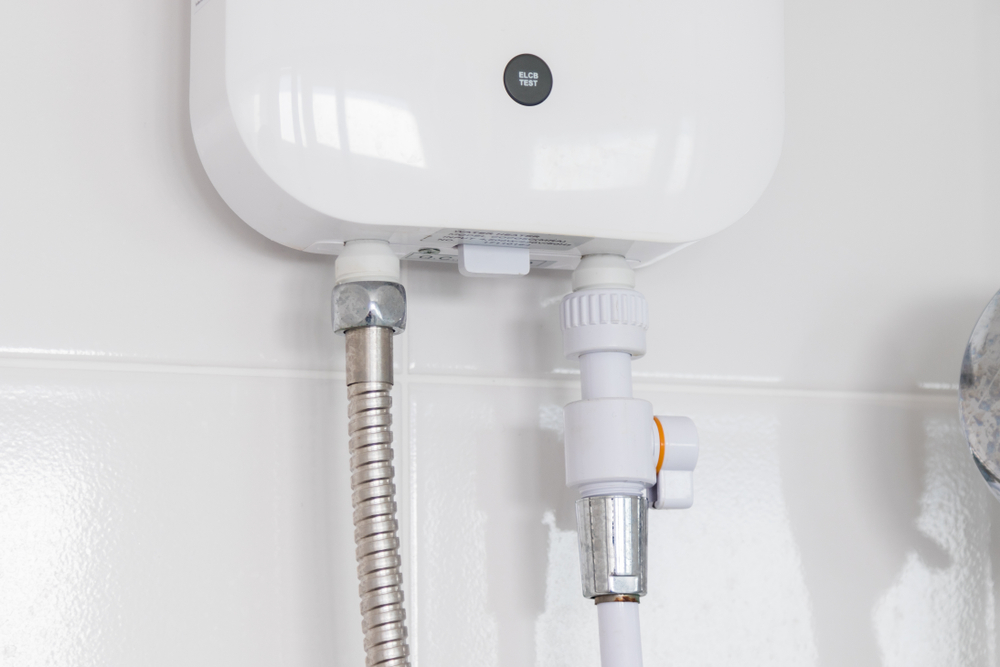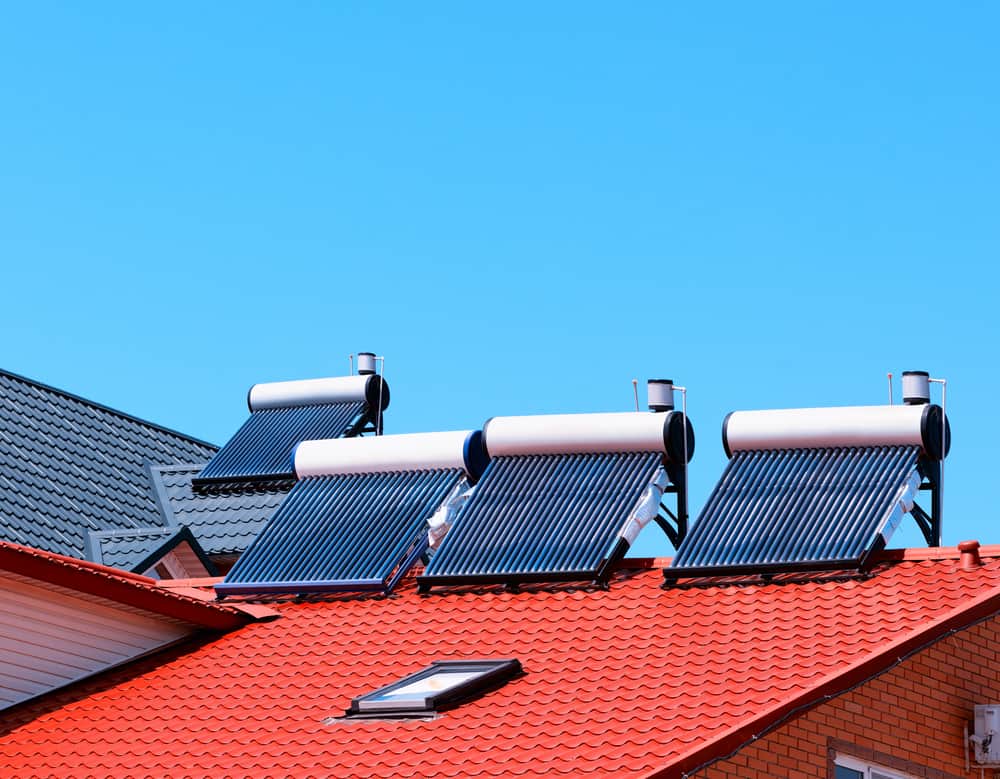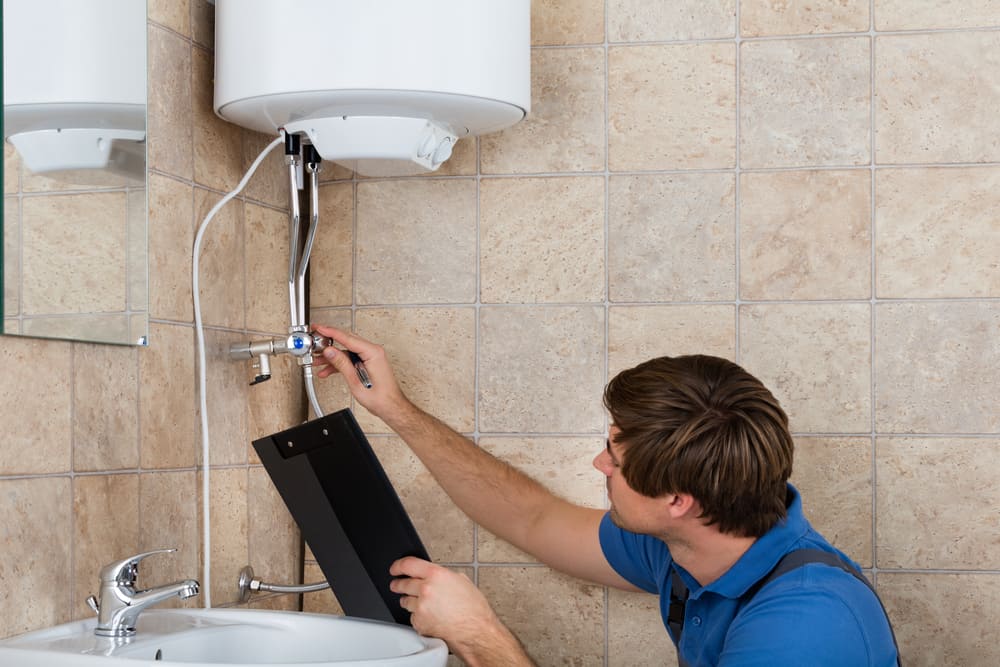
A reliable hot water system is incredibly important. Every day we rely on our hot water units to provide warm showers, and deliver a consistent flow to all household taps.
While their purpose always remains the same, hot water systems vary significantly in style, capacity and efficiency. When you compare hot water systems, modern hot water units can be powered by electricity, gas, solar or a central heat pump.
If you’re unfamiliar with these key differences or currently looking for an upgrade, we’re here to explain everything you need to know.
Of course, as one of Melbourne’s leading heating and cooling companies, our team are more than happy to answer any questions regarding hot water service installation or system replacement. We offer expert assistance with hot water, as well as heating and cooling from Ringwood to Richmond.
In terms of core functionality, there are two main types of hot water heaters – storage and instantaneous. The style you choose can dictate everything from the time it takes to deliver hot water, all the way to household utility costs.
A storage based system maintains a consistent supply of hot water that is warm and ready to go at all times. Instantaneous or ‘continuous flow’, on the other hand, only heats water when required. While storage units come with an interlinked water tank, the latter will not and is therefore a smart choice for anyone with spatial limitations.
We should also note that storage units come with in-built ‘off-peak’ systems that only heat during designated times of the day. Generally, this off-peak approach allows owners and tenants to save money on their energy bills.
In recent decades, hot water systems have expanded to include a wide range of different power sources and systems of operation. Even the more traditional forms of gas and electric have seen significant advancements in energy efficiency, green technology and overall reliability.
Let’s quickly explore all four.
One of the most common hot water units in the country. According to government figures, electric models are currently found in approximately 50% of Australian households. Across the board, electric units are less expensive to purchase and install. However, they can ultimately be more expensive to run – this will depend on just how energy efficient the system is.
An electric water heater can be both storage and instantaneous. If you need further info from our experts in hot water, heating and cooling, our Epping based team are more than happy to assist.
Powered by a natural gas line connection or LPG, gas is generally easy to install and maintain. This also typically translates to lower power bills. These days, instantaneous water heaters are the most common form. Keep in mind that you will need adequate outdoor space to allow for the proper ventilation.
While heat loss and inefficiency are a particular concern with older gas units, times have changed. Current HVAC manufacturers are continually searching for new ways to improve upon technology and address these issues. Modern gas water heaters come with a far greater level of energy efficiency than their older counterparts.
For example, Rinnai’s ‘Infinity Range’ models all come with eco-friendly designs and high energy star ratings of 6 and above. Infinity units are backed by generous heat exchanger warranties and boast an ability to never run out of hot water.
Whether you want to save money in the long term or do your bit for a greener future, solar water heaters are another excellent choice. In terms of installation, each home must be able to accommodate the installation of solar panels, flat plates or excavated tubes, as well as a connected storage unit.
Solar installation/setup is more labour intensive, which results in a higher than average installation price. However, this initial figure is offset by lower ongoing running costs moving forward. Some solar units can also be fitted out with gas or electric boosters, which is most relevant in areas where access to sunlight is limited.
Overall, solar energy systems will help you to significantly reduce energy consumption and carbon emissions.

Following its introduction, heat pump technology quickly became a hallmark of modern hot water systems. Heat pumps use an insulated storage cylinder to heat up water with an exchanger – using the air and operating much the same as reverse cycle air conditioning. These are normally stand-alone units that don’t need a connection to external storage tanks.
Heat pump water heaters can be integrated (where the tank and compressor are combined) or split (where each component remains separate). Like solar, heat pump hot water units generally have a higher upfront cost. Despite this, the vast majority of systems on the Australian market are remarkably cheap and efficient to run.
As these systems will generate noise, it is also worth checking the unit’s decibel level before making a final decision and purchase.
Although we’ve briefly covered each style, everyone’s home is different and not all systems with suit your unique needs and requirements. With that in mind, here are a number of factors that you will need to consider while comparing the various systems.
Upgrades and Replacements
If you have an existing hot water unit, you will need to organise a time for its safe removal. This process must be performed by licensed HVAC technicians or plumbers to avoid any mishaps. At this point, the contractors will also be able to help you select a suitable replacement, provide a quote and arrange a time for the follow-up installation.
Available Space
Hot water units come in a wide range of sizes. Spatial requirements and limitations such as roof space, therefore, play a major role in hot water systems installation. Some homes have the necessary space for solar panels or electric storage tanks, while others require a compact solution such as stand-alone heat pumps.
Efficiency and Star Rating (for Gas)
If you’re going with electric storage or instantaneous gas, remember to check the star rating before you purchase. For gas, anything within the range of 5 to 6 is a safe bet. There are also heat pump, solar and electric options that deliver excellent efficiency. Please note that in Australia, not all units will feature a star rating.
Budget
From renovations to new builds, we know that price is always a major consideration. If your budget is particularly tight, look out for deals, discounts and government rebates that help to lessen the burden on the initial installation cost.
Power Bills
Given Australia’s current cost-of-living crisis, this is a major sticking point for many homeowners – and for good reason. For lower energy costs, opt for solar, heat pump or electric and gas models with high star ratings.
Greenhouse Emissions
As hot water systems are used on a daily basis, the unit’s carbon footprint is definitely an important factor to consider. If your budget allows for higher upfront costs, solar hot water units are a wise, sensible and eco-friendly choice. This is also another great reason to move on from your older gas or electric system.
Noise
When you take a shower or turn on the taps, certain units (most notably heat pumps) will generate noise as they kick into action. So, if this is a concern, seek out installation in a tucked away area (where possible) or opt for a quieter unit.
Lifespan and Maintenance
Lifespan depends on a variety of factors, from the quality of design and manufacturing to how well it is maintained after installation. Most new systems will last between 8 to 25 years. Regular servicing and inspections, of course, are the best way to keep your system humming and avoid any faults.

Across the board, everyone needs a reliable unit that meets their daily hot water demands. Whether you’re tossing up between continuous flow water heaters or gas storage, it is always worth speaking to an expert. We not only have over 20 years’ experience, but also a wealth of hot water knowledge.
From cost-effective hot water heaters to ducted heating in Donvale, we have all bases covered. Get in touch with us today to speak with an expert.

© Copyright 2026 - Absolute Airflow - All Rights Reserved